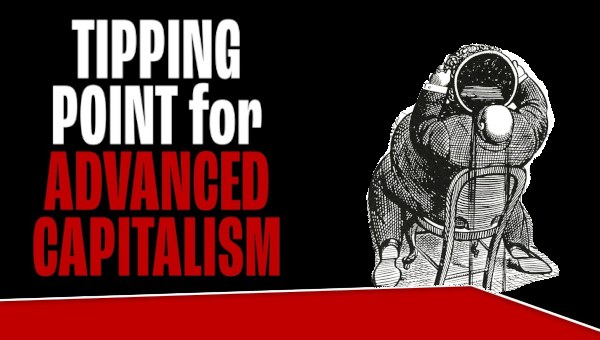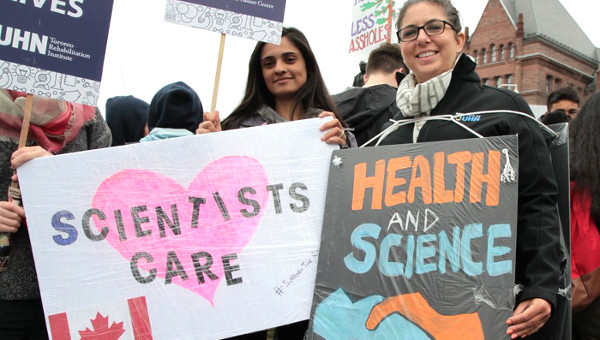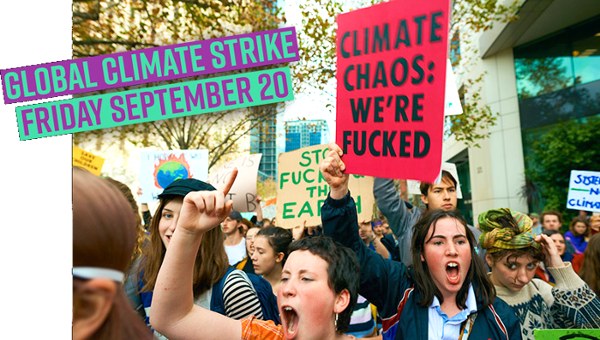Green Economy, Green Capitalism? The Case Against The Case for Climate Capitalism
Even now, with a ten-year timeframe left for action, it’s rare for the climate crisis to be treated as the emergency it is. So, credit where due to Tom Rand. In his The Case for Climate Capitalism: Economic Solutions for a Planet in Crisis (Toronto: ECW Press, 2020), Rand calls for a rapid transition away from fossil fuels and toward renewables; he blames the political and business elite for the mess and says they will have to pay the price as markets turn against oil and assets are stranded; he even advocates for expansion of public transit. Where the book gets less refreshing is Rand’s tone toward the people who have been saying these things all along: his secondary enemy, leftists fusing demands for climate action with calls for economic justice.
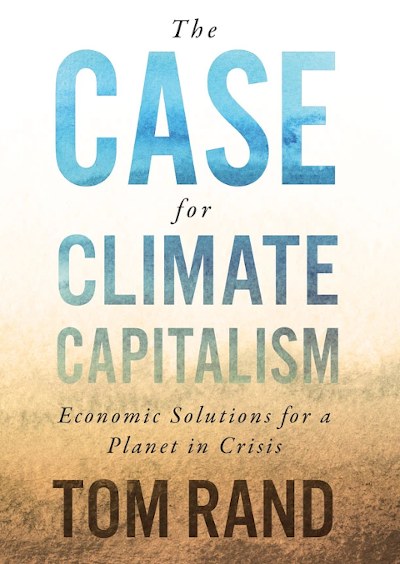
Rand’s Case for Climate Capitalism aims to preserve and “co-opt” the forces of capitalism to usher in a transition toward green tech. His case is presented as simple pragmatism: the emergency we face affords us no time to discuss economic reforms; we must unite and do what works instead of holding out for a perfect system. His concern is that left ideas like the Green New Deal and Leap Manifesto – which wed strong climate action with job guarantees, labour protections, taxing the rich, and expanding social programs – alienate conservatives and the business class when we need them in our coalition to save the planet.
Capitalist Markets and Managing Risk
The book’s analysis is based on the need to manage the risks of climate change. Rand has no love for neoliberalism and sees government regulation as essential to any thriving market. He advocates for market-based climate solutions like carbon pricing, targeted public subsidies, accelerated exports of renewables, “flexible regulations,” publicly mandated Green Banks to fund green industries, and government Green Bonds managed by the private sector to provide low interest financing for low-carbon industries. These are all necessary measures, but Rand wants to preserve private property, markets, and profit motive alongside them. He concedes endless growth is a problematic feature of capitalism but sees it as inevitable under any system and something to be dealt with later. Socialism on the other hand is a “dangerous distraction” that “would rip apart our social and economic fabric” and “divide us when we need to come together.”
Despite assigning them moral equivalence, more ink is spilled on chastising leftists than the libertarians and oil barons who Rand admits are at fault for the climate crisis. He mostly attacks Naomi Klein and says fighting for a better world is just a quest for “moral purity” that will sink real efforts to get everyone on side while wasting time we don’t have on ideological debates.
There are several conceptual problems here. First, the environmental movement’s pivot from narrowly ecological concerns to a broader focus on economic justice has been a deliberate strategy to foster a mass movement for climate action by giving working class and marginalized people something worth buying into. It’s not quixotic to tie these demands together because many people face more immediate, daily emergencies than climate change. Rand does not acknowledge the other crises of capitalism that manifest as unemployment, precarity, poverty, homelessness, labour abuses, and colonialism nor does he seem concerned about the massive displacement an energy transition would cause for workers. It isn’t practical to expect people to sign up for an extremely disruptive economic transition without at least a plan for job retraining and expanding the social safety net.
Second, he underestimates how hard it will be to sell his agenda. Rand believes his business colleagues mostly want to do the right thing but can’t without policy guidance, a suspect claim given the resources they easily marshal for other political agendas that help their bottom line. He highlights a carbon tax and rebate as something conservatives can get behind, ignoring they have fought that very policy since it was enacted federally in 2018. The right wing support that centrists crave is a lost cause and unnecessary in a country where the vast majority of Canadians view climate change as an emergency and want the government to act accordingly, with 72% supporting a Green New Deal. The goal isn’t to spend time appealing to conservatives, but to design a climate strategy that is both fair and effective.
Rand contends a regulated market system is best for he has “yet to hear a coherent alternative” to capitalism. Admittedly, the left has struggled to mobilize around an alternative economic roadmap but some great ideas are out there with much more substantive solutions than Rand’s. Jason Hickel’s book, Less is More: How Degrowth Will Save the World (London: Windmill, 2020), also came out last year and shows how Rand’s narrow focus on emissions belies the full scale of the environmental crisis and why growth is a problem. Like Kate Raworth’s concept of ‘doughnut economics’, in her Doughnut Economics Seven: Ways to Think Like a 21st Century Economist (White River Junction, VT: Chelsea Green, 2017), Hickel’s focus on strategically limiting growth while meeting human needs acknowledges that biodiversity, deforestation, desertification are all major if underwritten issues that even a capitalist economy based on renewable energy would still fall short of addressing. The more we produce, the more energy we use and the more resources need to be consumed. These processes can be made more efficient, but growth entails more absolute space for energy infrastructure to electrify our economy, to grow food and clothing materials, to expand roads, and to store waste – plus more mineral extraction for renewables and batteries.
These are not problems for a future generation to deal with; Hickel argues it will be hard enough to decarbonize our current economy, let alone one that keeps growing bigger. We need to at least slow down and scale down in the next decade in order to make the switch from oil to renewables feasible. The idea of degrowth isn’t about lowering GDP per se, but rather not focusing on it as an end in itself. We need to grow some sectors (renewables, healthcare, public transit, childcare, etc) while quickly shrinking others (fossil fuels, arms, advertising, etc). By ending planned obsolescence, sharing community assets like cars and lawn mowers, and curbing food waste, the focus would be on quality rather than growth.
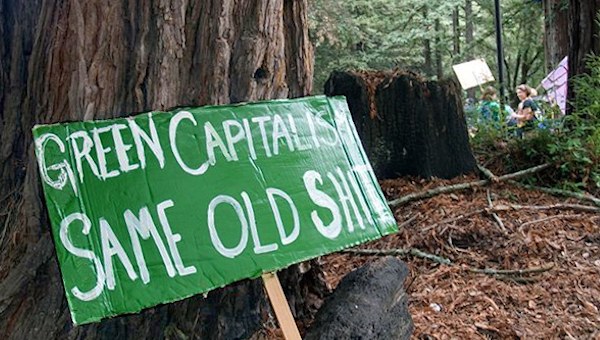
Economic Democracy, Climate Change and Needs
Economic democracy would enable this shift toward needs. Most people hear ‘nationalization’ and think of a Crown corporation run by partisan bureaucrats, but there’s no reason for it to be that way. Under a cooperative model, workers, consumers, Indigenous and marginalized communities, and scientists could set priorities as stakeholders – restructuring corporate boards into “economic parliaments” that elect management to pursue social needs rather than profit for its own sake. A green enterprise or sector structured this way wouldn’t need to read the tea leaves of the market – its customers would be right there on the board giving direct feedback on community needs, balanced with labour rights and fair wages. Rand dismisses energy co-ops as too small, but it’s just a matter of re-structuring any sized enterprise so shareholder governance is replaced with worker and community input. While he rightly argues a high level of industrial capacity and expertise are necessary for a rapid energy transition, it’s not clear why the power relations of capitalism must accompany it.
Rand claims that markets are subject to democratic rules, yet capitalists routinely subvert democracy. It is telling that Rand champions a “disruptor” like Elon Musk as one of the good guys. Musk is often hailed as a climate savior but he is a prime example of the risks inherent to even green capitalism. Musk has a net worth of $180-billion (USD), a symptom of the inequality produced by market systems. He is anti-union and ignored local regulations by sending workers back to Tesla’s California factory during COVID, suing the county and threatening to move shop in defiance of “fascist” health restrictions. 400 Tesla workers have since contracted the virus. His vision of public transport is roads choked with EVs instead of gas cars while fear mongering about the strangers and “serial killers” you might find on public transit. Musk is now working on weapons delivery systems for the US Military. The problem with market systems that give a lot of power to a few people is that power is often used in unchecked and unsavory ways.
But can’t capitalism be reformed with better social programs, higher minimum wages, and taxing the rich? We absolutely need to fight for these, but having a few very powerful people in society is a liability to their success. The wealthy can easily lobby against or support campaigns to reverse progressive policy; they can convince people jobs will be lost or outsourced because of higher business costs and unionization.
Rand seems disinterested in substantially taxing the rich. He supports revenue neutral carbon taxes ‘balanced’ by corporate tax cuts and using public money to subsidize green enterprise. A Green Bank is a good idea, but why give the private sector more handouts instead of drawing on the massive wealth of billionaires, corporate cash reserves, capital gains, and tax havens to fund a green revolution that includes affordable housing, healthcare expansion, mass transit, social supports etc? Rand simply doesn’t see these as emergencies, and fails to understand climate change for the transformative opportunity it presents.
We face a range of emergencies including but not limited to climate change and we can’t trust the same people and systems causing them to helm the transition, or the next major crisis for that matter. The real solution is democratizing the economy – managing risk by empowering those whose lives are impacted by the outcome – and tackling the interrelated crisis we face with a common set of solutions. For all his talk of the need for emergency climate action, Rand ends his book conceding we may have to accept 3 degrees Celsius of warming. But this isn’t negotiable. Two degrees was always the ceiling past which climate change would usher in catastrophic and irreversible effects, so anything overshooting that is just not good enough. Tom Rand ignores the crises of capitalism in the name of fighting climate change, with a strategy that would fail to do even that. •


